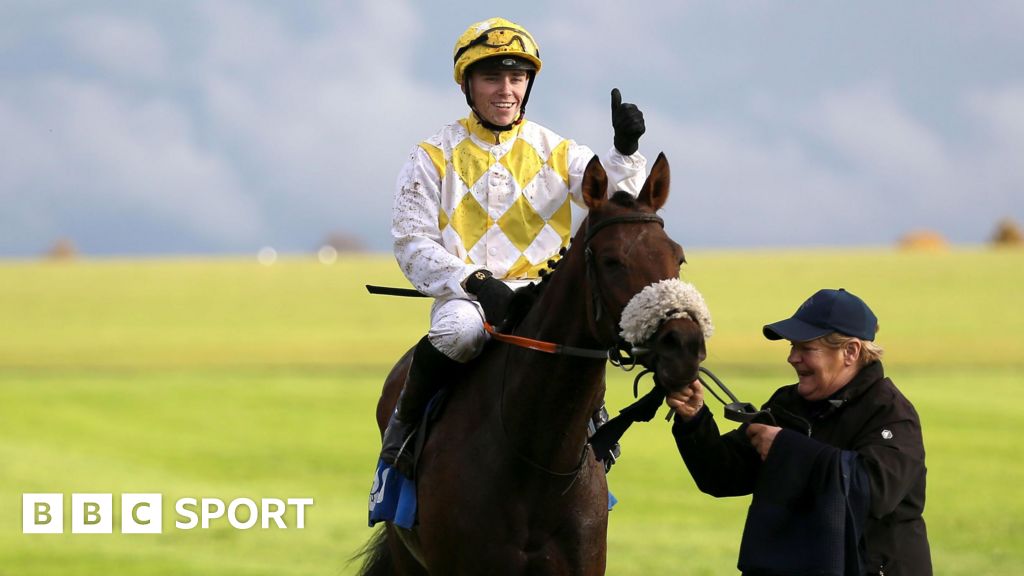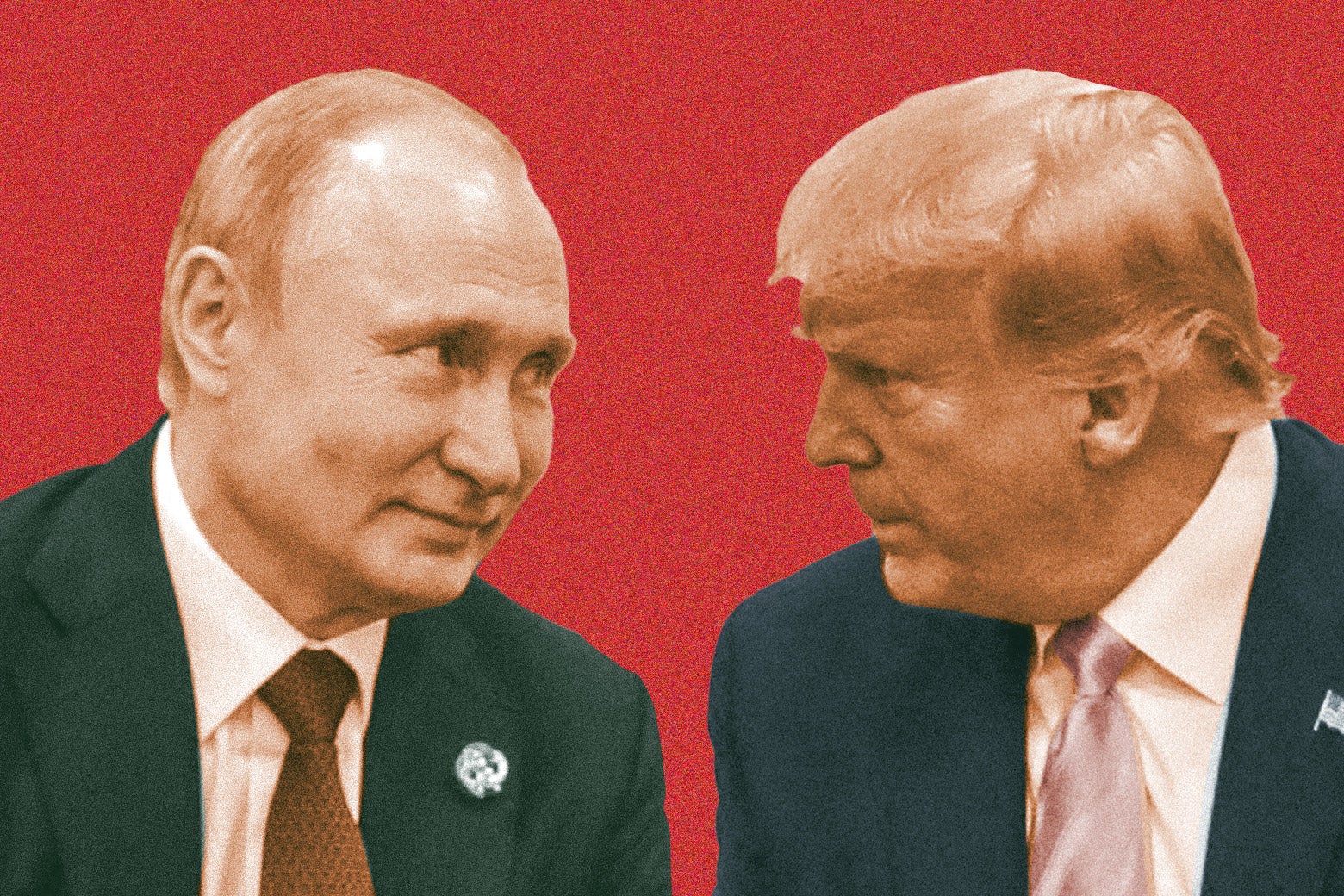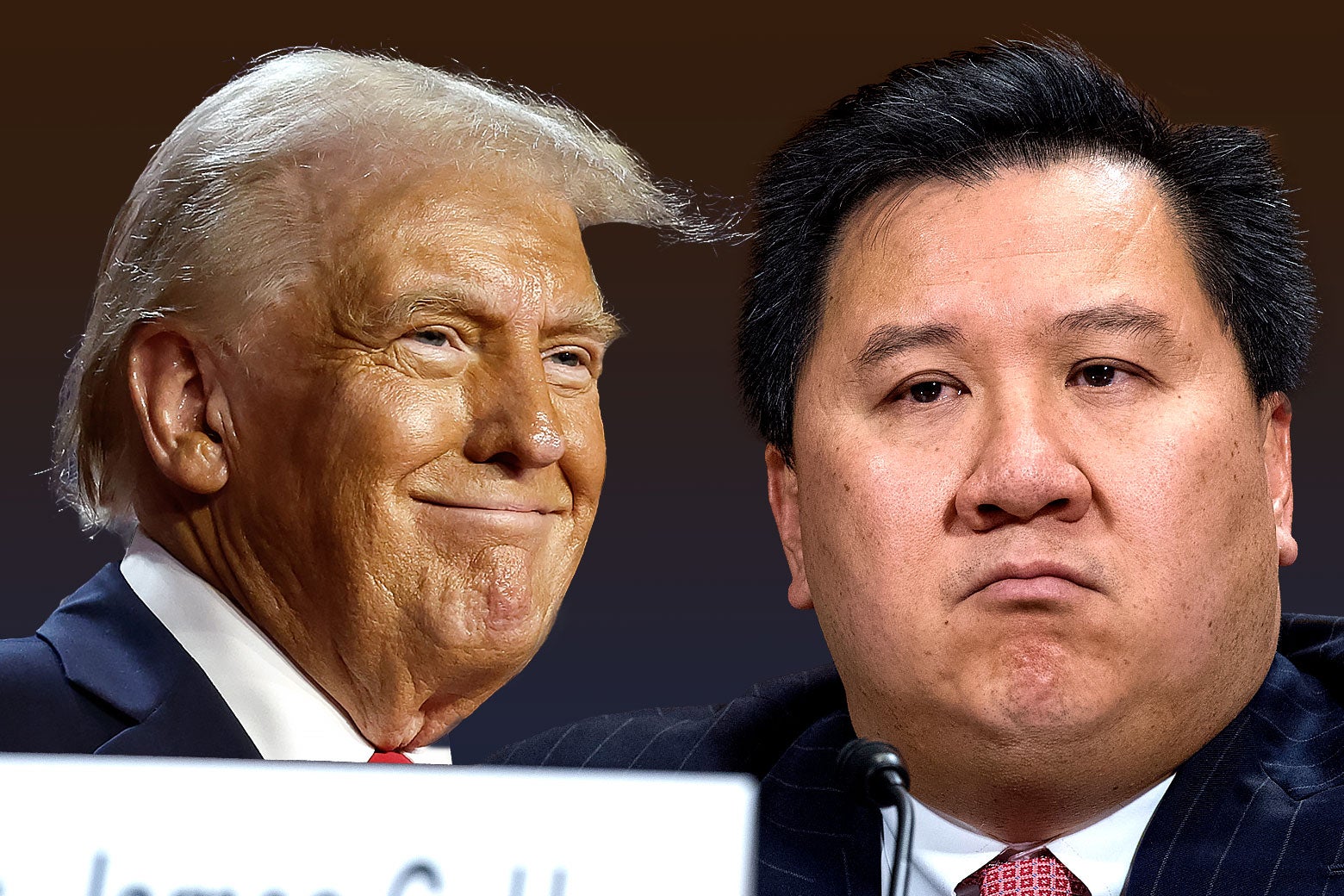Just one week has passed since Donald Trump’s electoral triumph, and already Russian President Vladimir Putin—one of the strongman leaders Trump admires most—is messing with his head.
First, Putin waited two days before congratulating Trump on his victory. One can imagine Trump receiving phone calls from kowtowing leaders the world over—Ukraine’s Volodymyr Zelensky, Israel’s Benjamin Netanyahu, the Palestinian Authority’s Mahmoud Abbas, the chief of NATO, the European heads of state—all the while wondering about the man whom he’s admired publicly and privately for the past eight years: When is Vladimir going to call?
Then, in response to Trump’s claim that during their phone call, he asked—in some accounts, warned—Putin not to escalate the war in Ukraine, a Kremlin spokesman denied that the two had spoken on the phone at all. (Putin issued his belated congratulations at a news conference.)
I don’t know who’s telling the truth, a practice for which neither man has a sterling reputation. But either way, in the next few weeks, when Putin orders 50,000 fresh recruits (including 10,000 imported North Korean soldiers) to go on the next rampage—ousting Ukrainian soldiers from the thin slice of Russian territory they hold, then retaking soil across the border in Donbas province—he can tell a complaining Trump that he doesn’t recall any such conversation. If Trump thinks Putin actually will refrain from stepping up attacks on Ukraine as a friendly favor … well, maybe our once-and-future president will learn a lesson about the limits of personal relations in the face of perceived national interests early in his second term.
The final twist of this saga came on Monday, when Nikolai Patrushev, an aide to Putin who was previously director of Russia’s Federal Security Service, made the following comment in an interview with the Moscow newspaper Kommersant:
The election campaign is over. To achieve success in the election, Donald Trump relied on certain forces to which he has corresponding obligations. As a responsible person, he will be obliged to fulfill them.
This is a mind-blowing bit of psychological warfare! The Russians are basically telling Trump: We put you in office. Now it’s time for you to pay us back.
Did this make Trump wonder: WTF?
It is well established that toward the end of this year’s presidential election campaign, Russians created and disseminated phony videos designed to swing voters away from Vice President Kamala Harris. One such video purported to show illegal Haitian immigrants voting. (The FBI, the director of national intelligence, and the top cybersecurity agency issued a rare joint statement about that claim, warning that these videos were false and Russian in origin.) Russians also phoned in bomb scares to polling stations in Black neighborhoods that tend to favor Democratic candidates.
However, there is no evidence—nor has anyone claimed—that Trump or his campaign staffers colluded in, or knew anything about, these videos or the bomb threats. If Trump did have some involvement, or if Russia possesses some other form of kompromat (compromising material) on Trump, Patrushev’s message constitutes an extraordinarily bodacious threat of blackmail, delivered in public, against an American president-elect.
If Trump did not have any involvement in this escapade, Patrushev’s gambit shows—some would say, confirms—that Russia’s main goal, in all these misinformation ventures, is to sow chaos, breed mistrust, and weaken the sinews of democracy in Western countries, especially in the U.S., regardless of who is the president.
What Trump does about this campaign—whether he is fully aware of its extent and depth—is as yet unknown. His foreign policy, which he has clearly expressed many times, is angled toward a realignment with Putin’s Russia. At a first-term news conference in Helsinki, he said he believed Putin rather than his own intelligence agencies on the question of whether Russia interfered in the 2016 election. More broadly, Trump abhors multinational alliances, especially NATO. He considers U.S. military aid to Ukraine to be a waste of money; he doesn’t much like Ukrainian President Volodymyr Zelensky, decrying him as a “salesman,” and he no doubt remains bitter over the role that their “beautiful phone call” played in his first impeachment trial. (This was the call where Trump tried to hold up delivery of U.S. anti-tank missiles until Zelensky agreed to dig up dirt on Hunter Biden.)
The entire MAGA wing of the Republican Party—which is to say, the Republican Party—endorses Trump’s desire to renew good relations with Russia, all the better to go after America’s real adversary, Xi Jinping’s China. The first few of Trump’s Cabinet nominees—Rep. Mike Waltz as national security adviser, Sen. Marco Rubio as secretary of state, and Rep. Elise Stefanik—all share this perspective. Soon after his victory, Trump made a point of tweeting that former Secretary of State Mike Pompeo and former U.N. Ambassador Nikki Haley, both of whom had lobbied for a senior position, would have no place in his administration. Haley had committed the unforgivable sin of running against Trump in the primaries, but beyond that, both she and Pompeo supported—and still do support—boosting military aid to Ukraine. So, they were out.
One can only wonder what Trump will do—whether he’ll change his position, whether he’s capable of changing his stance—when he realizes, if he realizes, that Putin is not his friend. Trump certainly should not act as if he is.
Update, Nov. 14, 2024: This piece has been updated to more accurately reflect Patrushev’s governmental position.

















